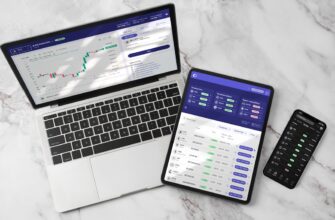Understanding DeFi Tax Obligations in the UK
Decentralised Finance (DeFi) has revolutionised how UK investors earn yield through staking, lending, and liquidity mining. However, HMRC treats DeFi rewards as taxable income or capital gains. With crypto tax enforcement intensifying, understanding how to pay taxes on DeFi yield in the UK is critical to avoid penalties. This guide breaks down HMRC’s latest cryptoasset rules, helping you stay compliant while maximising returns from your decentralised investments.
How HMRC Taxes DeFi Yield in the UK
HMRC’s Cryptoassets Manual categorises DeFi earnings based on activity type. Unlike traditional savings, DeFi lacks automatic tax reporting, placing responsibility squarely on investors. Key principles include:
- Income Tax: Applies immediately when you receive rewards (staking yields, liquidity mining tokens) at their GBP market value
- Capital Gains Tax (CGT): Triggered when disposing of DeFi assets, including swapping tokens or withdrawing from liquidity pools
- Tax Bands: Income tax rates range from 20% to 45%, while CGT is 10%-20% depending on your income level
- No £1,000 Trading Allowance: Unlike casual trading, DeFi earnings don’t qualify for this exemption
Tax Treatment of Common DeFi Activities
Different DeFi strategies incur distinct tax implications. Here’s how HMRC typically assesses popular yield-generating methods:
- Staking Rewards: Taxed as miscellaneous income upon receipt. Example: Earning 1 ETH from staking must be declared at its GBP value that day.
- Liquidity Mining: Rewards are taxable income when claimed. Adding/removing assets from pools also triggers CGT events.
- Lending Protocols: Interest from platforms like Aave is treated as savings income, taxable when accrued.
- Yield Farming: Complex multi-step strategies require tracking both income events (token rewards) and CGT (token swaps).
Essential Record-Keeping for DeFi Taxes
Accurate documentation is your first defence against HMRC inquiries. Maintain:
- Transaction timestamps and wallet addresses
- GBP value of crypto at transaction time (use exchange rates from reputable sources)
- Records of gas fees and network costs (deductible against gains)
- Platform statements showing reward distributions
- Calculations for pooled asset allocations
Consider using crypto tax software like Koinly or CoinTracker that integrate with UK tax rules to automate this process.
Reporting DeFi Taxes to HMRC
All taxable DeFi activity must be declared via Self Assessment:
- Report income on the SA100 form under “Other Income”
- Declare capital gains using the SA108 supplementary pages
- Calculate gains/losses using HMRC’s share pooling rules (same-day, 30-day, then Section 104)
- Submit by 31 January following the tax year end (6 April – 5 April)
Note: DeFi losses can be carried forward indefinitely to offset future capital gains.
Penalties for Non-Compliance
Failure to properly pay taxes on DeFi yield in the UK risks:
- £100-£1,000+ fines for late Self Assessment filing
- Interest charges on unpaid tax (currently 7.75%)
- Additional penalties up to 100% of tax owed for deliberate concealment
- Potential criminal investigation for large-scale evasion
HMRC actively tracks crypto transactions via blockchain analysis and international data sharing agreements like the Crypto-Asset Reporting Framework (CARF).
Frequently Asked Questions (FAQ)
Q: Is unstaking crypto a taxable event in the UK?
A: No, merely unstaking isn’t taxable. Tax applies when you dispose of the unstaked assets (sell, swap, or spend).
Q: How is impermanent loss treated for tax purposes?
A: HMRC doesn’t recognise impermanent loss as deductible. You’ll pay CGT based on actual disposal value versus acquisition cost.
Q: Can I deduct DeFi platform fees?
A: Yes, transaction fees (like gas costs) directly related to taxable events reduce your capital gains liability.
Q: Are stablecoin yields taxed differently?
A: No, all DeFi yields – whether in ETH, stablecoins, or tokens – are taxed as income based on GBP value at receipt.
Q: What if my DeFi platform collapses?
A: You may claim capital loss relief for irrecoverable assets. Document evidence of the platform’s insolvency.
Q: Do I need to report if I earned under £1,000?
A: Yes. Unlike casual trading, DeFi earnings don’t qualify for the Trading Allowance. All income must be declared.








